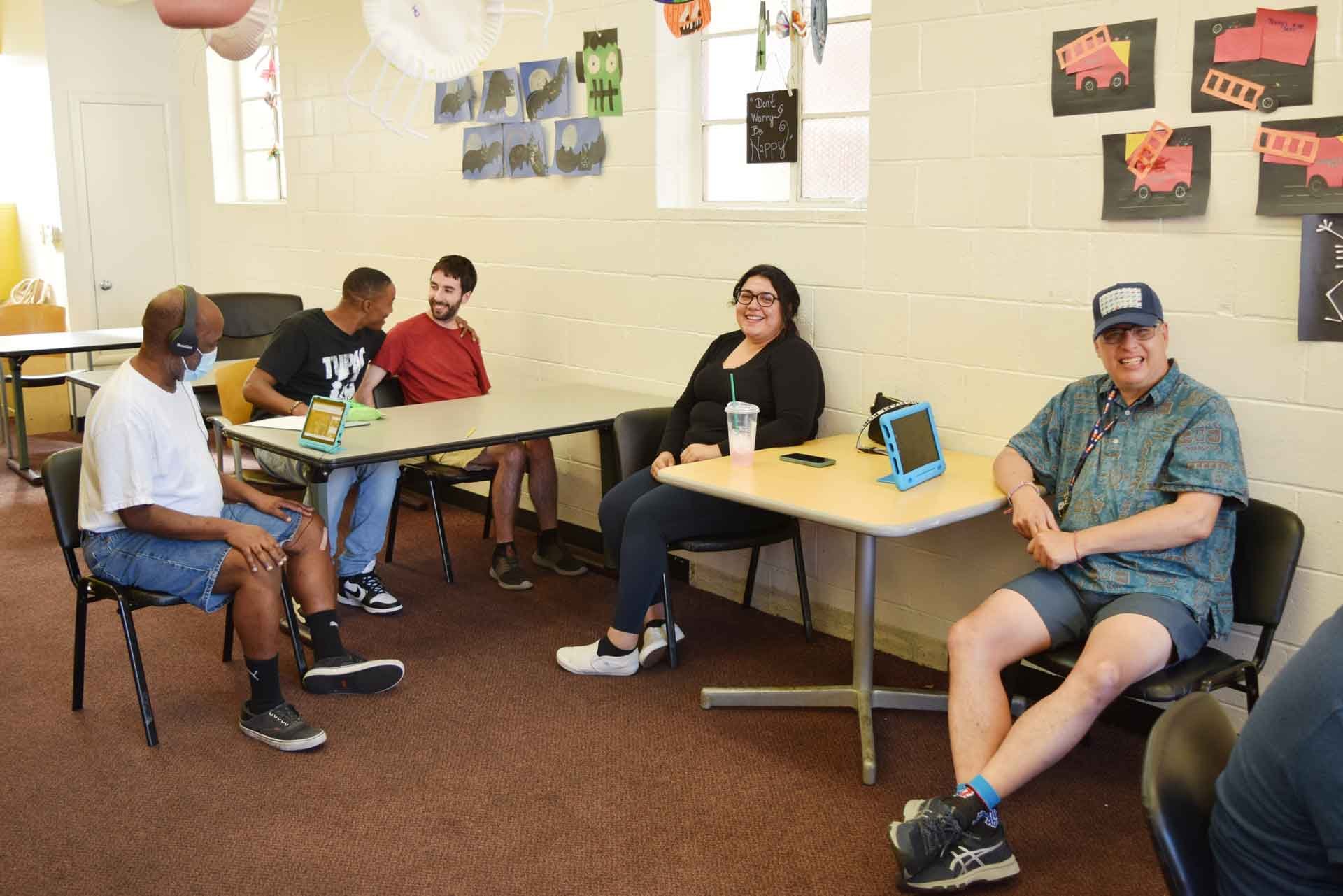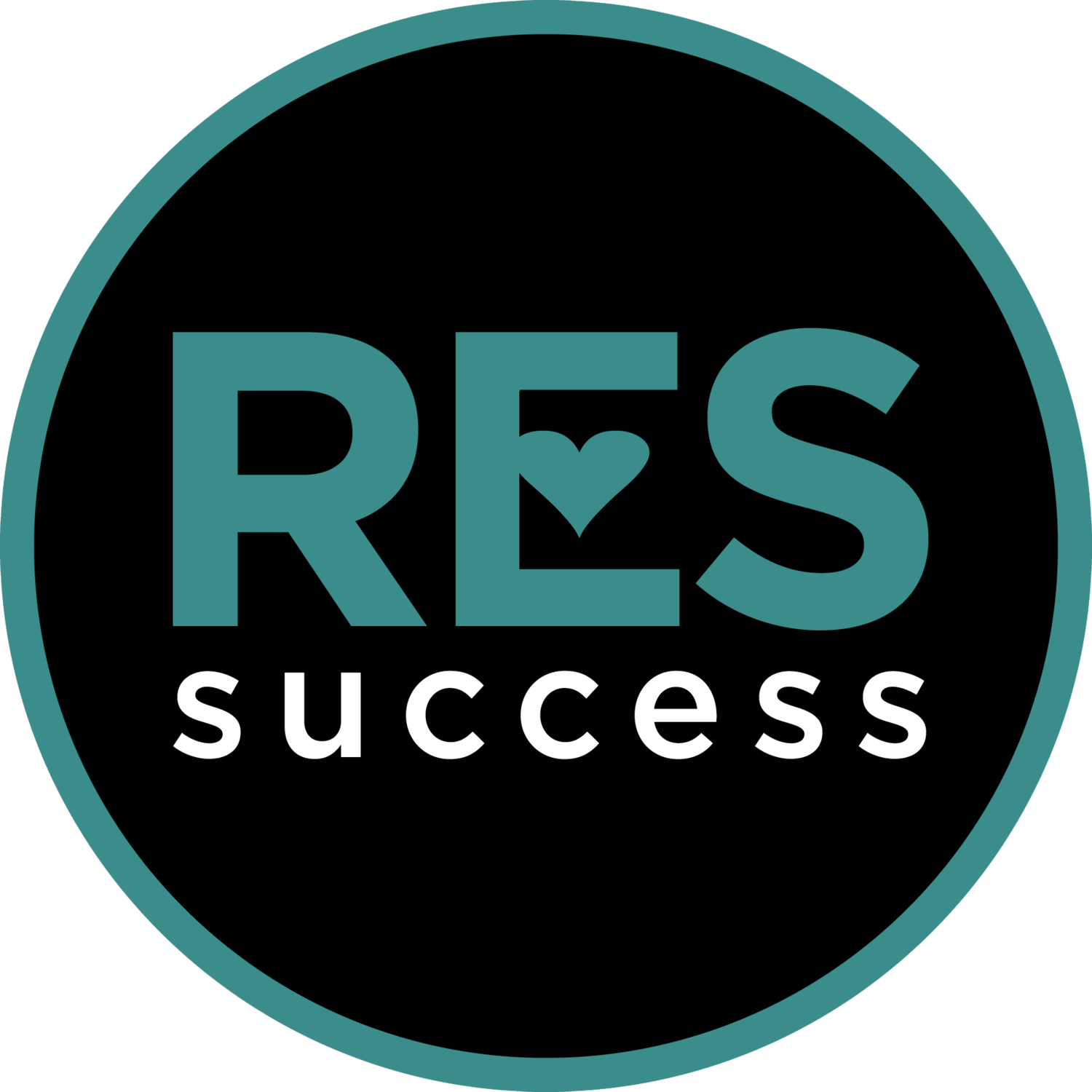
About Our Philosophy of Service
RES Success is person-centered and community-based.
Read on to find out what these mean for us and the people we support.

RES Success is Person-Centered
We treat everyone we serve as an individual with unique needs and goals and inherent dignity and value. We support each person in making their own choices to achieve the things that matter most to them.
RES Success is Community-Based
We work in partnership with the Regional Center of the East Bay and other organizations to provide a continuum of care for people with intellectual and developmental disabilities, allowing the people we support to live in the homes that they choose — often with family or friends — and participate in their communities.
Keep reading for more background into these concepts and how they fit in our larger community.

Person-Centered Thinking
Person-centered thinking is an approach that puts the individual with intellectual and developmental disabilities (IDD) at the center of their own support planning process. This means that the individual's preferences, strengths, needs, and goals are identified, understood, and used to guide the design of their day program.
In the context of supportive day programs for adults with IDD, person-centered thinking involves listening to and respecting the person's wishes and desires, involving them in decision-making, and tailoring services and activities to meet their unique needs and interests. This approach aims to empower the person and enhance their sense of autonomy, dignity, and well-being.

Community-Based Organizations and the California Lanterman Act
The California Lanterman Act is a law that was passed in 1969 to support individuals with intellectual and developmental disabilities (IDD) by providing them with access to necessary services and supports to help them live more independently and be active members of their communities. The Lanterman Act established a system of regional centers that provide assessment, planning, and coordination of services for individuals with IDD and their families.
Community-based organizations (CBOs), like RES Success, play a vital role in implementing the Lanterman Act by providing a variety of services and supports to individuals with IDD and their families. CBOs are private organizations that work with regional centers to provide specialized services that meet the unique needs of individuals with IDD.
CBOs work collaboratively with the regional centers and other community partners to ensure that individuals with IDD receive the most appropriate and effective services and supports to help them achieve their goals and live fulfilling lives in their communities.
For more information, visit the California Department of Developmental Services (DDS): California Lanterman Act - DDS; or Disability Rights California: Rights Under the Lanterman Act.

Home and Community-Based Services (HCBS) Final Rule
The Home and Community-Based Services (HCBS) Final Rule is a regulation issued by the Centers for Medicare & Medicaid Services (CMS). It establishes requirements that states must follow to receive federal Medicaid funding for HCBS programs. These programs provide services to individuals who might otherwise require institutional care but prefer to receive services in their own homes or communities.
The HCBS Final Rule aims to enhance the quality of HCBS programs by promoting person-centered planning and delivery of services, ensuring the health and welfare of participants, and enhancing the rights of individuals receiving HCBS. It requires states to provide services in the most integrated setting appropriate to the individual's needs and preferences and to offer opportunities for individuals to engage in community life.
The rule also establishes standards for the settings in which HCBS services are provided, ensuring that they offer individuals choice and control over their services and promote independence and community integration.
Overall, the HCBS Final Rule is intended to improve the quality of life for individuals receiving HCBS and to promote their full participation in community life.
For more information, visit the California Department of Developmental Services (DDS): Home and Community-Based Services (HCBS) Final Rule.
